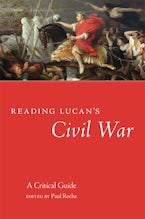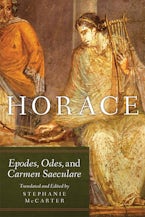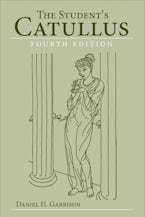- Home
- foreign language study
- Tibullus
Tibullus
A Commentary
Published by: University of Oklahoma Press
Imprint: University of Oklahoma Press
222 Pages | 5 x 8
$24.95
The work of the Latin elegiac poet Tibullus (c. 55-19 b.c.) is characterized by an artful, witty "simplicity," and it relies on repetition, ambiguity, irony, and paradox for its effect. His poetry appealed to his countrymen in his own time, as it still does to students today, and this textbook is designed to explain and enhance that appeal.
The commentary presented here is limited to the sixteen poems which comprise the first two books of the corpus Tibullianum, that is, to poems authentically by Tibullus. The notes focus on the needs of students approaching Latin elegy for the first time, but they will also prove useful to the more experienced student of Latin or to scholars in other languages. The editor has tried to balance matters of fact with occasional fresh interpretations. One introduction records what is known of the poet’s life and discusses the rise of Latin elegy. The meter of the poems is explained, and Tibullus’ style is examined.
Michael C. J. Putnam is Professor of Classics in Brown University, Providence, Rhode Island. He holds B.A., M.A., and Ph.D. degrees from Harvard University. He has been Prix de Rome Fellow and Scholar in Residence at the American Academy in Rome, as well as a Guggenheim Fellow.












